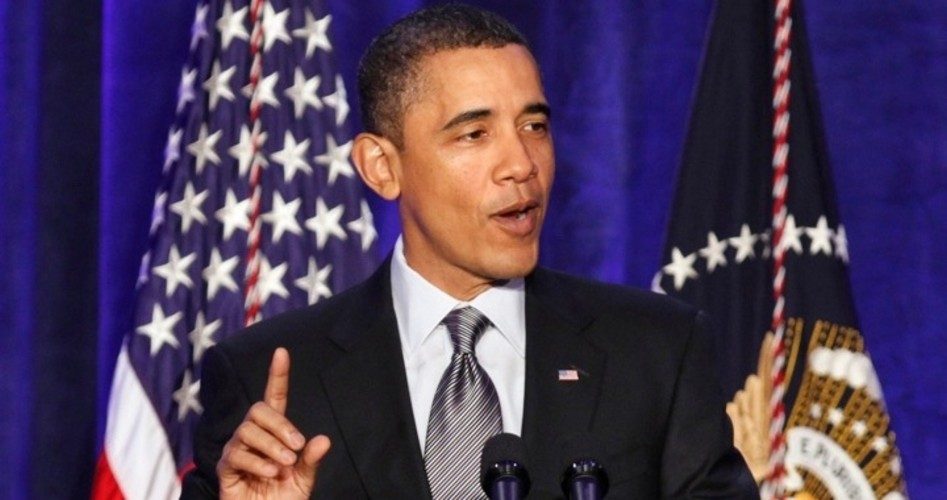
In a recent speech delivered to supporters in Roanoke, Virginia, President Obama reignited a class warfare-brand of rhetoric that is sure to inflame many hardworking Americans who have labored tirelessly to achieve their own success. Emphasizing that affluent individuals “didn’t get there” on their own, the president’s dialogue during the July 13 campaign event arrived only days after he urged Congress to extend the Bush tax cuts only to families earning an annual income of less than $250,000.
Obama prefaced his contentious allegation with a warning that without the purported tax increases on the rich, slashing the deficit will translate into dramatic cuts in education, transportation, healthcare, basic research, and other government-sponsored programs. In defending the administration’s so-called deficit-reduction plan, he asserted:
There are a lot of wealthy, successful Americans who agree with me — because they want to give something back. They know they didn’t — look, if you’ve been successful, you didn’t get there on your own. You didn’t get there on your own. I’m always struck by people who think, well, it must be because I was just so smart. There are a lot of smart people out there. It must be because I worked harder than everybody else. Let me tell you something — there are a whole bunch of hardworking people out there.
If you were successful, somebody along the line gave you some help. There was a great teacher somewhere in your life. Somebody helped to create this unbelievable American system that we have that allowed you to thrive. Somebody invested in roads and bridges. If you’ve got a business — you didn’t build that. Somebody else made that happen. The Internet didn’t get invented on its own. Government research created the Internet so that all the companies could make money off the Internet.
The president went on to explain that America’s collective spirit is the stimulant to individual success, and that personal initiative deserves only a fragment of the praise. For example, “There are some things, just like fighting fires, we don’t do on our own,” he affirmed. “I mean, imagine if everybody had their own fire service. That would be a hard way to organize fighting fires.”
In effect, the argument is that prosperous Americans, even those who have generated wealth through their own labor, should thank teachers, police officers, construction workers, and those in similar professions, for their efforts in helping them achieve such opulence. And in expressing their gratitude, they should be happy to pay more in taxes.
The president’s combative remarks seem to echo the controversial words of far-left Massachusetts senatorial candidate Elizabeth Warren, who is renowned for her leading role in the conception of the Consumer Financial Protection Bureau. Last September, Warren made waves after proposing that “there is nobody in this country who got rich on his own — nobody.” In relaying her class-warfare sentiments, Warren offered a rather bizarre proclamation:
You built a factory out there? Good for you. But I want to be clear. You moved your goods to market on the roads the rest of us paid for. You hired workers the rest of us paid to educate. You were safe in your factory because of police-forces and fire-forces that the rest of us paid for. You didn’t have to worry that marauding bands would come and seize everything at your factory — and hire someone to protect against this — because of the work the rest of us did.
Now look, you built a factory and it turned into something terrific, or a great idea. God bless — keep a big hunk of it. But part of the underlying social contract is, you take a hunk of that and pay forward for the next kid who comes along.
The argument is similar to Obama’s, as they both lean on the indication that wealthy Americans should pay more to the government so that politicians can then redistribute the wealth to the American collective, which, accordingly, is the catalyst to all prosperity.
Republicans, including presidential rival Mitt Romney, fired back on Monday, claiming the president is out of touch with the economy, and that his remarks targeting the upper class were “insulting.” Romney spokeswoman Andrea Saul said the allegation “reflect[s] just how unqualified he is to lead us to a real economic recovery,” adding that they “are also insulting to the hardworking entrepreneurs, small-business owners, and job creators who are the backbone of our economy.”
Kevin Hassett, an economist at the American Enterprise Institute, said the president’s vindication is “so far from the current debate,” and that it is a veneer for the White House’s tax plan. “Obama is trying to create the intellectual space to take money away from people,” Hassett noted. “He’s trying to say, ‘What you do on the playing field would never be possible without the help of the government.’”
Commenting on the president’s dubious exposition, small business owner Debi Somers, who runs a furniture store in Las Vegas, Nevada, concurred that “there isn’t any way that a small business owner can achieve their dream if they don’t have the support of the government.”
However, Somers said the notion that businesses and wealthy individuals owe their success to government “isn’t necessarily true.” She added, “We put in — we work 80 hours [per week], and we live it, we breathe it, we sleep it.”
In fact, Obama and Warren seem to have the argument backward: If it were not for private entrepreneurs applying their ingenuity and sweat-equity to building businesses, creating wealth, and hiring others — hence spreading their newly created wealth — government would have no source of wealth with which to build public roads in the first place.
Photo of President Barack Obama: AP Images


